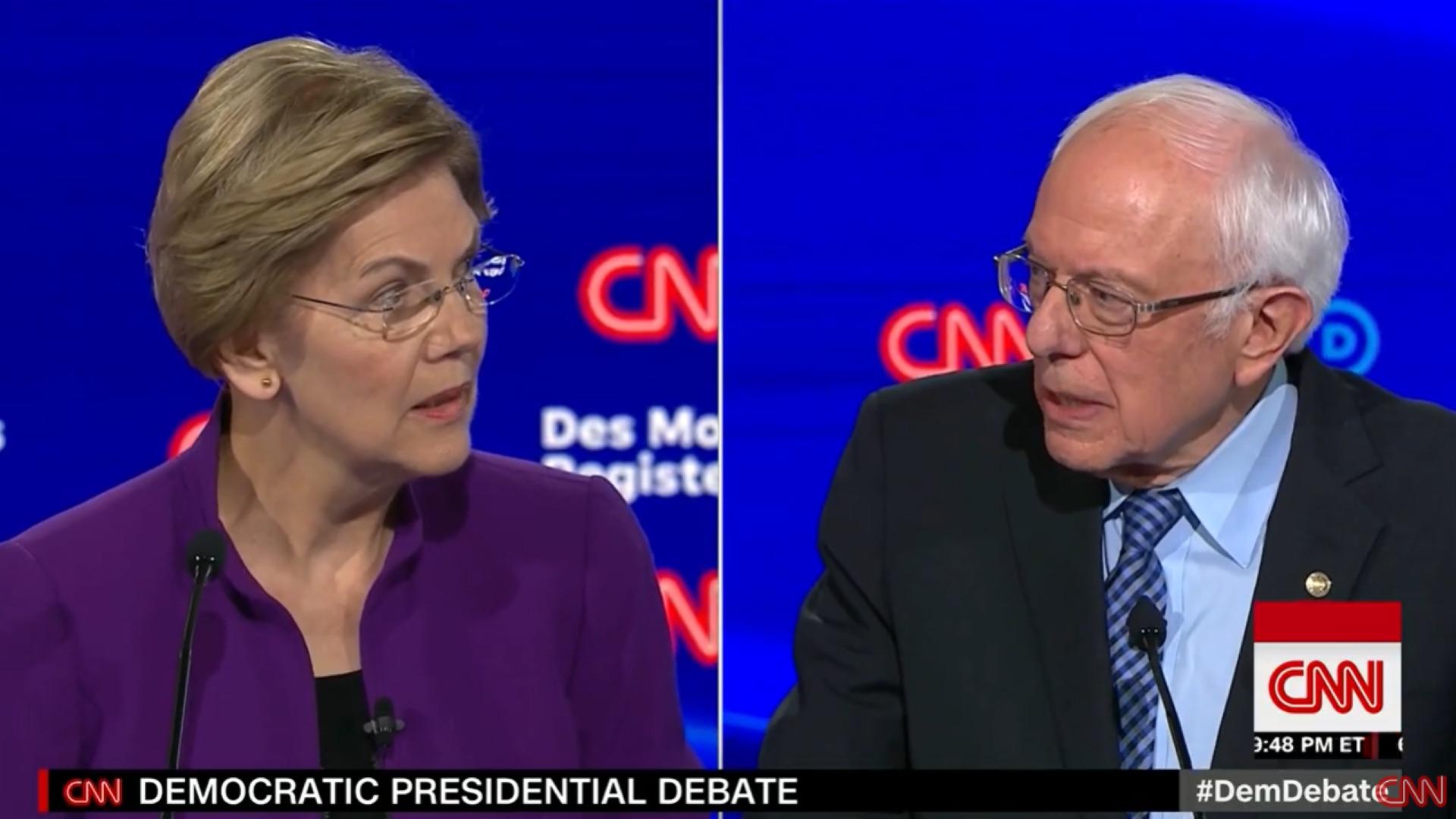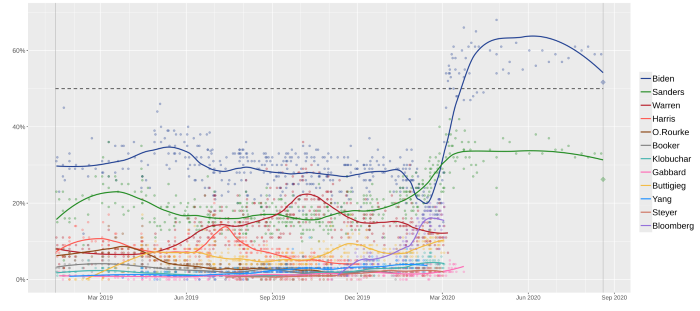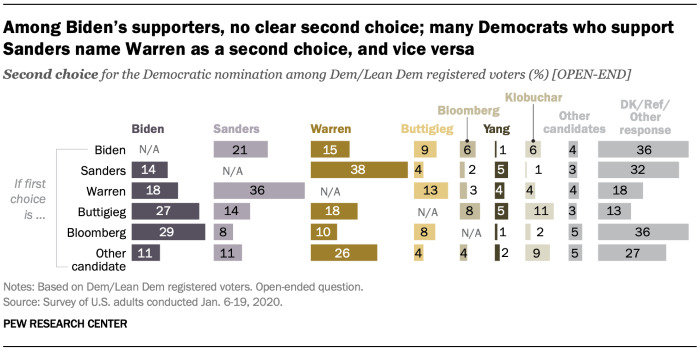Elizabeth Warren Is the Bernie Lost Cause Myth of 2020
Screenshot via CNN
This take has spawned from a bit of an insular moment on Bluesky, but the vast dogpile it created proved that the wounds of the 2020 Democratic primary are still fresh and distorting objective reality. There is something of a lost cause myth that has taken root amongst my fellow Bernie Sanders supporters, where Elizabeth Warren was supposedly the main thing preventing Bernie from winning the White House in 2020. While she does deserve some blame for her poor political performance that did harm the left’s ability to take power (her Medicare for All debacle pretty much ended her campaign before it began), she has become far too central to the story of how Bernie Sanders lost to Joe Biden, creating a lost cause myth for the left.
There is this wrongheaded belief that all of Warren’s voters would have automatically moved to Sanders had she dropped out and endorsed him, while her eventual embrace of Medicare for All and the support that decision lost her proves otherwise. Look at this Wikipedia chart of opinion polling from 2019 to 2020. Biden is the blue line up top, Bernie the green line under it, and Warren is the rising red line across 2019. When her support declined in 2020, Bernie’s rose, but so did Michael Bloomberg’s. Pete Buttigieg’s too. Tulsi Gabbard even saw a bump. Bernie would have received some of her voters, but far from all of them.

There is a natural assumption that the trend which opened 2020, Biden’s blue line falling while Bernie’s green line rose, would endure. But I don’t think it’s so simple and even without the Democratic establishment’s help, Biden easily could have snapped back to that roughly 30 percent baseline he sat at for a year. The average American voter is nowhere near as ideological as those of us who argue about politics are, and a lot of people liked Warren because of her wealth tax that only affected the top 0.1 percent of the population, drawing in Michael Bloomberg’s gilded voters. This also misunderstands the kinds of voters that Bernie attracted, thinking that they are only progressives who like Elizabeth Warren too, when there are many exit polls like this from 2016 demonstrating how 39 percent of West Virginia primary Sanders voters said they would vote for Trump over Bernie in the fall. Sanders may have taken more voters away from Joe Biden in 2020 than he did from Elizabeth Warren, given that Pew found that a little over a third of Warren voters preferred Bernie as their second choice in January of 2020, while one fifth of Biden’s much larger coalition preferred Bernie as their second choice.
-

-

-

-

-

-

-

-

-

-

-

-

-

-

-

-

-

-

-

-

-

-

-

-

-

-

-

-

-

-

-

-

-

-

-

-

-

-

-

-

-

-

-

-

-

-

-

-

-

-

-

-

-

-

-

-

-

-

-

-

-

-

-

-

-

-

-

-

-

-

-

-

-

-

-

-

-

-

-

-

-

-

-

-

-

-

-

-

-

-

-

-

-

-

-

-

-

-

-

-

-

-

-

-

-

-

-

-













































































































